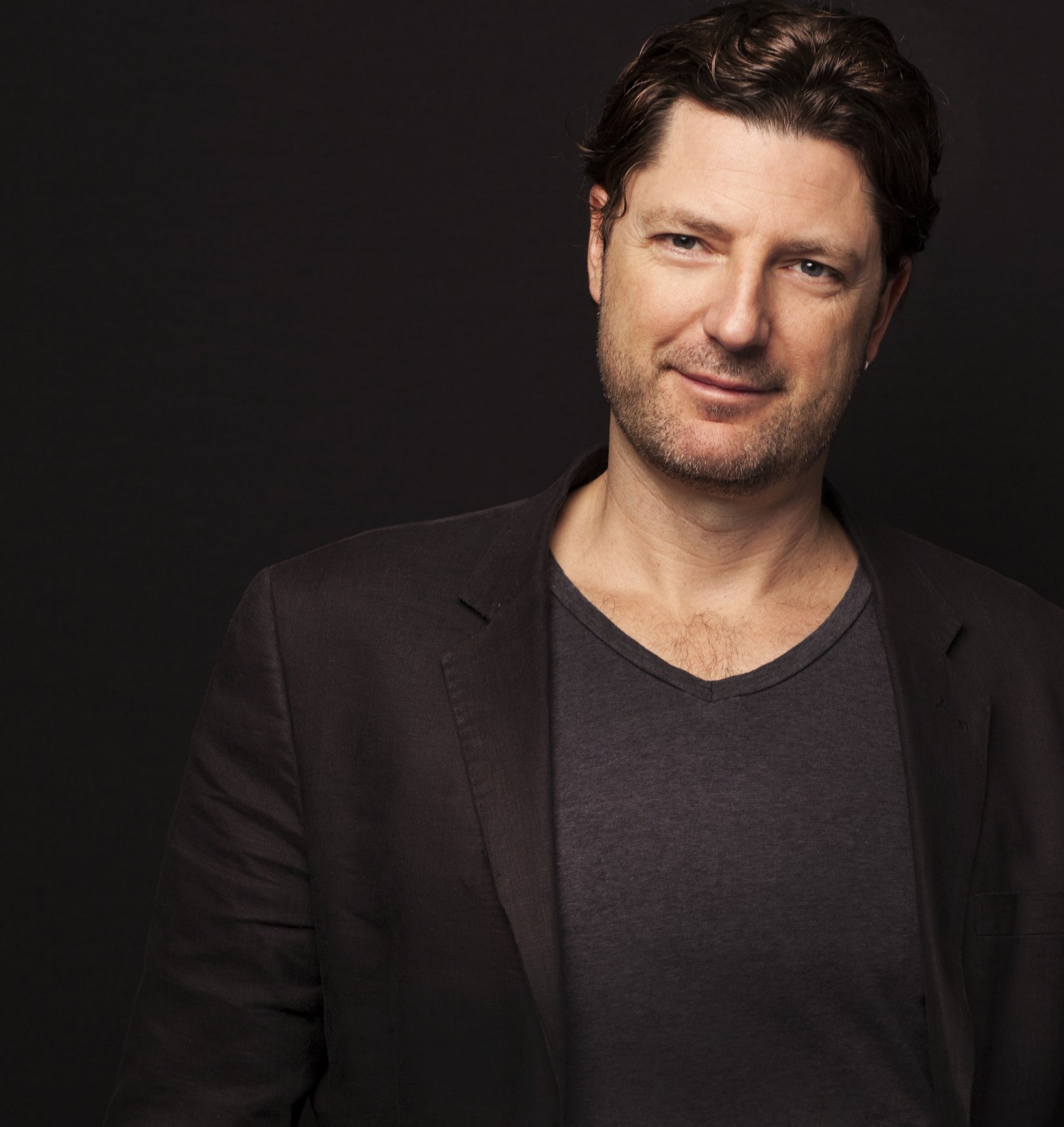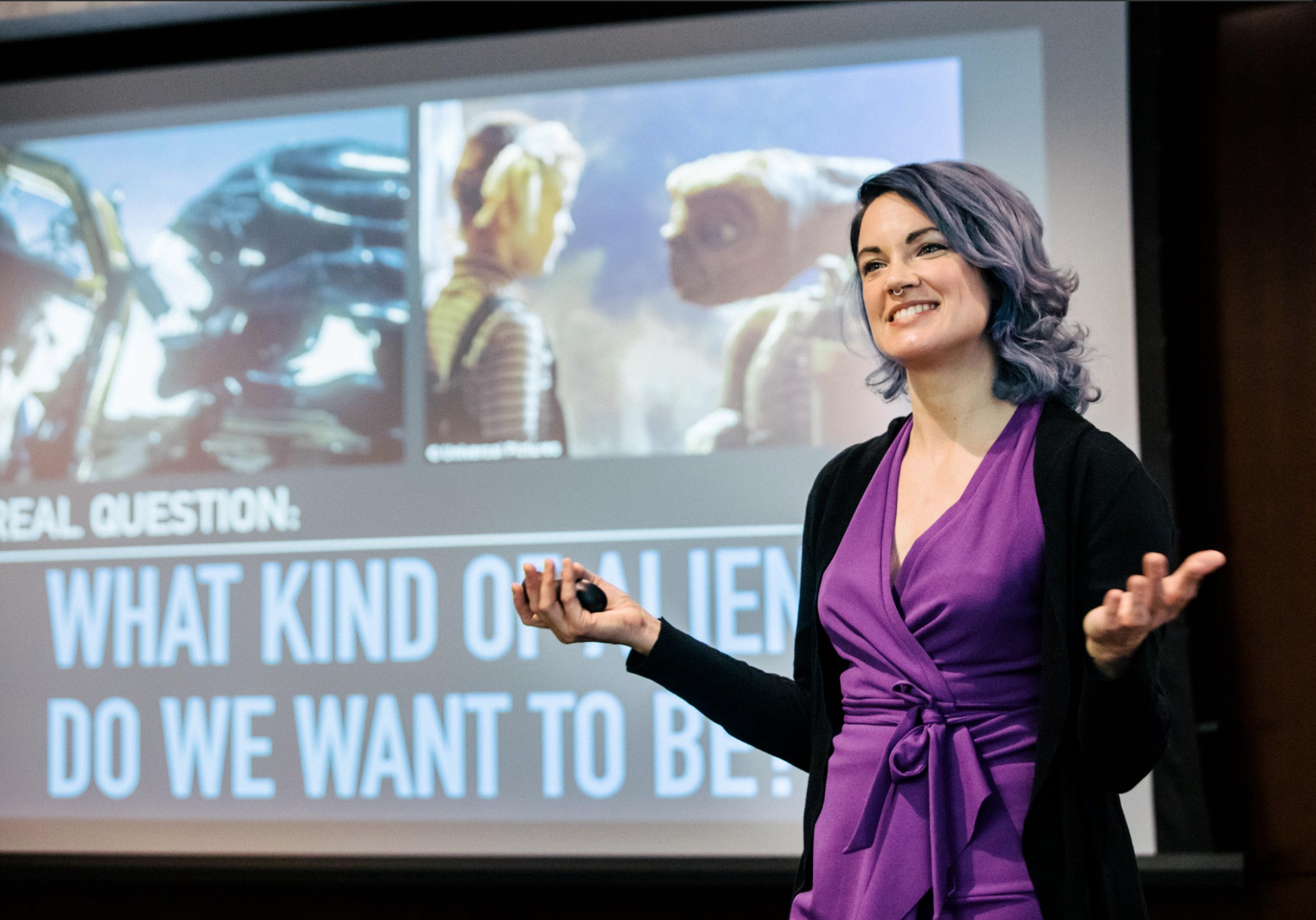Hilding Neilson
Chair
Dr. Hilding Neilson is an astronomer, and an assistant professor in the Department of Physics & Physical Oceanography at Memorial University of Newfoundland & Labrador. His research focused on the physics of stars and exoplanets, how stars live and die, the search for extraterrestrial life in the Galaxy, and the ethics of space exploration. Dr. Neilson is Mi’kmaw and Settler from Ktaqmkuk and works to build to weave western astronomy and Indigenous knowledges and methodologies to better understand astronomy and the night sky. He has been featured on numerous outlets including the CBC, the Walrus, the Guardian and more. He has also published over 50 research articles.
Alissa Haddaji
Vice Chair
Dr. Alissa J. Haddaji is a faculty researcher and lecturer in Space Law, Policy and Ethics at Harvard University and a Lecturer on Law at Harvard Law School. She founded and leads the Space Consortium at Harvard & MIT, and Space Week at Harvard. She is the coordinator of the United Nations-mandated Space Mission Planning Advisory Group (SMPAG) Legal Working Group on Planetary Defense where she also represents the Committee on Space Research (COSPAR). She is a Planetary Protection and Defense legal and policy consultant for the US Institute for Defense Analysis (IDA) and a lecturer in Space Law, Policy and Space Anthropology at the International Space University (ISU). Dr. Haddaji is a UNOOSA Space4Women Mentor, an organizing committee member of the International Academy of Astronautics’(IAA) Planetary Defense Conference, the COSPAR point of contact for the Space Generation Advisory Council (SGAC), a member of the International Astronautical Federation's (IAF) Near-Earth Object Committee and of the International Institute of Space Law (IISL). Prior to her Planetary Defense work, Dr. Haddaji held the positions of senior researcher in Space Economics at Harvard Business School, of fellow in Science and Technology Studies at Harvard Kennedy School and of visiting researcher at the George Washington University’s Space Policy Institute in Washington DC. She also served for four years as COSPAR’s Planetary Protection Project Officer, where she co-authored and led the coordination of the International Planetary Protection Handbook (IPPH) and created international Planetary Protection trainings in America, Europe and Asia. Dr. Haddaji has BAs in World History/International Relations and Socio-Anthropology, MAs in American History, Political Science & Law, and Science & Technology Studies and an MS in Planetary Science applied to Space Oceanography. She defended her first PhD dedicated to International Natural Disaster Management applied to Planetary Defense in 2019. She is currently finishing her 2nd PhD (remotely) at École Normale Supérieure (ENS), Paris, on International Space Politics and its social glass ceilings.
Juan Francisco Salazar
Secretary
Juan Francisco Salazar is a Chilean interdisciplinary researcher, author and creative practitioner based in Sydney, Australia. His academic and creative work explore the coupled dynamics of social-ecological change and is underpinned by a collaborative ethos across the arts, science and activism. He a Professor of Communications, Media and Environment at Western Sydney University, Australia where he is also an Australian Research Council Future Fellow (2020-2024) with a project on critical social imaginaries of space futures which continues his decade long cultural research in Antarctica. He is the co-founder of the Antarctic Youth Coalition and has developed collaborations with organizations in Sydney such as The Australian Museum, The Museum of Arts and Applied Sciences, The Biennale of Sydney, Arts + Cultural Exchange, as well as internationally, including Proboscis Studio (UK) and the Instituto Antártico Chileno (Chile). His films and video installations include: Anatomia Monumental (1999), De la Tierra a la Pantalla (2004); 33˚South (with Sarah Waterson, 2008); Nightfall on Gaia (2015) and The Bamboo Bridge (with Katherine Gibson, 2019). They have screened at prestigious venues and festivals including Serpentine Gallery (London 2022); Biennale of Sydney (2022); London International Documentary Film Festival (2021); Vision du Reel (Nyon 2020); CPHDOX (Copenhagen 2015); Antenna Film Festival (Sydney 2015 and 2019); Casula Powerhouse Arts Centre (Sydney 2008); Museo de las Americas (Denver 2005); Museo Nacional de Bellas Artes (Santiago 1999). He holds a PhD in Communication and Media from Western Sydney University (2005) and a Bachelor of Anthropology from the University of Chile (1995).
Image credit: Sally Tsoutas
Jordan Bimm
Treasurer
Jordan Bimm is Assistant Instructional Professor of Science Communication and Public Discourse at the University of Chicago and a 2023-2024 NASA Astrobiology Program Field Scholar. His work in science and technology studies (STS) and history of science focuses on the human and biological problems of space exploration, specifically the fields of space medicine and astrobiology. His work has been published in the journals Historical Studies in the Natural Sciences (HSNS) and Social Studies of Science (SSS) and popularized in places like The New York Times and The Atlantic. His research has won the Sacknoff Prize for Space History, a Guggenheim Fellowship at the Smithsonian National Air and Space Museum, and the David Edge Prize for social studies of science. At the University of Chicago he runs a space science communication research unit called Capsule Communicator.
Nadia Khan
Nadia Khan is a first year graduate student on the Technology Policy Program at the Institute for Data Systems and Society at MIT. She has an eclectic background. She has a BA in International Relations, where she focused on space policy for her undergraduate thesis. Nadia was an Aziz Foundation Scholar at University College London's Space Science and Climate Physics department where she completed an MSc in Space, Risk and Disaster Reduction. Nadia is interested in exploring ethical issues arising from space exploration. She is a graduate researcher at the MIT Media Lab's Space Exploration Initiative. She also works at the Engineering Systems Lab, on the NASA funded ASTRA project. Link to Media Lab site: https://www.media.mit.edu/groups/space-exploration/team-members/.
Jonathan Lim
Jonathan is an Australian lawyer, international space law expert, and human rights advocate. He is a member of the International Institute of Space Law and co-founder of Jus Ad Astra- advancing research and advocacy on the role of human rights across outer space activities and sustainable space governance. His achievements span numerous contributions to global discussions and academic journals on AI bias, cyber security, critical technology, and international relations. His work bridges policy, law, and ethics to promote responsible space exploration. Jon holds several advanced degrees including a Juris Doctor with Monash University, Master of Cyber Security with Charles Sturt University, and Master of Legal Practice with the Australian National University.
AJ Link
AJ Link (he/him) is openly autistic. He received his JD from The George Washington University Law School and his LL.M in Space Law at the University of Mississippi School of Law. He is the inaugural director of The Center for Air and Space Law Task Force on Inclusion, Diversity, and Equity in Aerospace and an adjunct professor of space law at Howard University School of Law. AJ is the Communications Director for AstroAccess and works as a research director for the Jus Ad Astra project. He serves as the Space Law and Policy Chair for Black in Astro and was the founding president of the National Disabled Law Students Association. He also helped found the National Disabled Legal Professionals Association and is a commissioner on the American Bar Association Commission on Disability Rights.
AJ is a policy analyst for the Autistic Self Advocacy Network. He has been actively involved with disability advocacy in the Washington, DC area and nationally within the United States. He serves on several advisory boards and steering committees that focus on disability advocacy and broader social justice movements.
Lucian Walkowicz
Lucian Walkowicz is an astronomer at the Adler Planetarium in Chicago and the 2017-2018 Baruch S. Blumberg NASA/LOC Chair in Astrobiology. Walkowicz studies the ethics of Mars exploration, stellar magnetic activity, how stars influence a planet’s suitability as a host for alien life, and how to use advanced computing to discover unusual events in large astronomical data sets. Walkowicz is the founding director of the LSSTC Data Science Fellowship Program, an initiative to provide astronomy graduate students with training in advanced computing. Walkowicz speaks and writes regularly on topics at the intersection of science and society, which have appeared on TED.com, Slate, The Washington Post, Vox, and more.
Walkowicz holds a BS in Physics and Astronomy from Johns Hopkins University, an MS and PhD in Astronomy from the University of Washington, and held postdoctoral fellowships at UC Berkeley and Princeton prior to joining the Adler Planetarium. They are also a TED Senior Fellow and a practicing artist, working in a variety of media, from performance to sound.
Damien Patrick Williams
Damien Patrick Williams is an assistant professor in Philosophy and Data Science at the University of North Carolina at Charlotte, where he teaches and researches how technologies such as algorithms, machine intelligence, and biotechnologies are impacted by the values, knowledge systems, philosophical explorations, social structures, and even religious beliefs of human beings. Damien has a PhD from Virginia Tech in the field of Science, Technology, and Society, and is especially concerned with how the knowledge and experience of marginalized peoples do and might be made to affect the technosocial structures of human societies. More on Damien’s research can be found at A Future Worth Thinking About.










